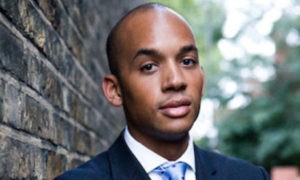By Ben Kerrigan-
Chuka Umunna, the MP for Streatham,has attacked the Tories’ approach to Brexit and immigration, accusing Theresa May of political “opportunism”.
>Umunna set out his vision for a bespoke post-Brexit compromise on free movement that could keep Britain in the single market, as he proposed an alternative “fair movement” approach.
COMPROMISE
Speaking at a Progressive Capitalism event, Umunna presented his idea as one which ”would involve allowing “travel as we have at present for short stays and holidays only but… [restricting] free movement to the movement of labour and offers of employment”. The former labour leadership contender stated that such a compromise could be possible due to the Treaty on the Functioning of the European Union, saying “its intention is to balance supply and demand within the labour market: ‘to avoid serious threats to the standard of living and level of employment in the various regions and industries.’”
SCATHING
Umunna, also blasted Theresa May, accusing the UK prime minister as treating the 16 million of citizens who voted to remain ”scathingly”. In a stark criticism of May’s branding of remain voters as “liberal elites”, Umunna highlighted high rates of child poverty and deprivation in his own constituency of Streatham- a strong remain county-to discredit May’s claim that ‘remain’ spots constitute a part of any elite.
A weakness in Umunna’s point is that one constituency in the whole of the UK cannot be representative of the PRO EU ‘remain group, though the aspiring labour leader is also right that the remain group in the Uk as a whole cannot be described as an elite.
However, there was generally an understanding during the referendum that most of the educated public voted to remain, whilst most of those who voted to stay were the uneducated. May’s reference to the Brexit group as elites may originate from this generalization.
Common sense tells us that no generalization is precise, but estimations most of the time. Most brexiters were concerned about the preserving the economy, whilst most Brexiters were more concerned about immigration issues and securing the sovereignty and independence of the British courts.Now, that the Brexit outcome has occurred, the best type of Brexit is truly needed.
SINGLE MEMBERSHIP
In Umunna’s view, this requires the single market membership, as one key to the maintenance of “employment protections”Umunna said that every major party made maintaining membership part of their manifesto at the last general election. Hard Brexit could mean “trading with the EU under WTO rules which would lead to tariffs in the order of 12% on exports of British meat, 10% on exports of British cars” which would harm British firms wishing to trade with the European Union.The problem with Umunna’s position is that EU leaders are not prepared to give the UK access to the single market whilst the UK leaves the EU. His idea of fair movement is bespoke and probably worth closer examination.
FIFTH LARGEST ECONOMY
Umunna seemed to echo brexiters when he highlighted Britain as the “fifth largest economy in the world”,words generally stated by Boris Johnson in the lead-up to the elections. Umunna’s point is that this fact makes compromise more likely, and that “the challenge for us is to put enough of a big offer on the table – that goes beyond immigration and the economy – from which they would benefit, to secure the bespoke deal we seek”.
To deny it is possible to achieve any compromise is, in essence,to basically make the case for hard Brexit which makes no sense at all if you are pro-European and progressive”.Umunna is suggesting that not being pro-European is not progressive but should see this as a value judgement, no matter how convinced he is of this. The future is yet to determine the facts on which of the two- pro-EU or Brexit is progressive
CRITICAL
Umunna was also critical of the current state of British politics, saying that it is “caught between two stools”, “a populism which refuses to acknowledge the challenges free movement can pose to local economies and community cohesion, and to willingly puts anyone who does so into the same bracket as bigots and racists; and a populism that wants to pull up the drawbridge altogether, places the blame for all the country’s problems at the feet of immigrants and wishes to turn post-Brexit Britain into some off – shore tax haven with poor citizen protections.”

